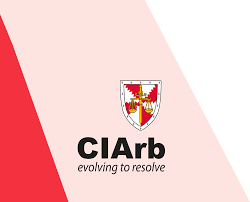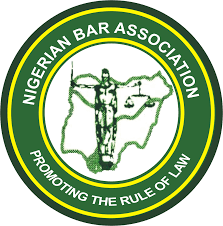Licensing In The Midstream and Downstream Operations In Nigeria
The Oil and Gas industry in Nigeria plays a significant role in the country’s economic growth. Within this industry, the midstream and downstream operations are essential sectors. These operations are regulated by specific requirements and licensing obligations.
This article aims to provide an overview of the key players in the midstream and downstream sectors, the regulatory framework governing these operations, and the necessary licenses for conducting business.
Midstream Operations in Nigerian Oil & Gas
Midstream operations in the oil and gas industry serve as a crucial intermediary phase between the upstream and downstream sectors. These operations involve the processing, storage, transportation, and marketing of oil, natural gas, and natural gas liquids.
Various service providers are involved in the midstream industry, including barge companies, railroad companies, trucking and haulage companies, pipeline transport companies, logistics and technology firms, transloading companies, and terminal developers and operators.
Stages of Midstream Operations in Nigeria:
The key stages of mid stream operations in the Nigerian oil and gas include:
- Transportation
This stage encompasses the movement of crude oil, natural gas, and related products from production facilities to processing plants, refineries, and distribution centers. Different methods such as pipelines, tankers, and rail transport are employed, with pipelines playing a significant role in long-distance transportation.
- Storage
Storage facilities are crucial for maintaining a steady supply of petroleum products. These facilities include tanks, caverns, and terminals where crude oil, natural gas liquids, and other products are stored before being transported to refineries or end-users.
Effective storage management ensures product availability even during periods of high demand or disruptions in the supply chain.
- Field Processing
Midstream processing involves treating raw crude oil and natural gas to prepare them for the market. This includes removing impurities, separating different hydrocarbon components, and ensuring compliance with quality standards.
Gas processing plants, for instance, separate natural gas liquids from raw natural gas, making them suitable for various applications.
The key players in the midstream sector are Pipeline operators and Shipping companies.
Downstream Operations in Nigeria
Downstream operations are the processes involved in converting oil and gas into the finished product. These operations refer to the refining of crude oil into gasoline, natural gas liquids, diesel, jet, and other fuels. These operations involve the refining, marketing, distribution and selling of the crude oil.
The closer an oil and gas company is to the process of providing consumers with petroleum products, the further downstream the company is said to be. These Companies in the downstream sector are those that provide the closest link to everyday users.
The range of products obtained from downstream operations includes liquefied natural gas, gasoline, heating oil, synthetic rubber, plastics, lubricants, antifreeze, fertilizers, pesticides, jet fuel, pharmaceuticals, propane, and diesel.
Key Players in Downstream Sector
The downstream sector comprises key players such as;
- Oil refineries.
- Petrochemical processing plants
- Distributors of petroleum products
- Natural gas distribution companies
- Retail outlets e.g. filling stations and gas stations
Regulatory Framework in Nigerian Petroleum Industry
The Petroleum Industry Act 2021 serves as the primary regulation governing midstream and downstream operations in Nigeria.
The Act is the legislative instrument that governs the business of petroleum operations in Nigeria and sets the rules for all activities in the Petroleum sector. The Act established the Nigerian Midstream and Downstream Petroleum Regulatory Authority (“NMDPRA”).
The NMDPRA is responsible for the technical and commercial regulation of the midstream and downstream operations in the petroleum industry. The objectives and functions of the NMDPRA is limited to midstream and downstream petroleum operations in the petroleum industry.
The functions of the NMDPRA is to amongst others;
- Regulate and monitor technical and commercial midstream and downstream petroleum operations in Nigeria.
- Regulate commercial midstream and downstream petroleum operations.
- Set cost benchmarks for midstream and downstream petroleum operations.
- Provide pricing and tariff frameworks for natural gas in midstream and downstream gas operations and petroleum products based on the fair market value of the applicable petroleum products.
- Grant, issue, modify, extend, renew, review, suspend, cancel, reissue, or terminate licenses, permits and authorizations for midstream and downstream petroleum operations.
Licenses in Nigerian Midstream & Downstream Operations
The NMDPRA holds the authority to grant licenses to operators in the midstream and downstream sectors. These licenses are categorized generally into Midstream and Downstream Gas Operations and Midstream and Downstream Petroleum Liquids Operations.
Some of the licenses in Nigerian Midstream and downstream operations include:
Licenses for Petroleum Liquids Operations in Nigeria
- Petroleum Liquids Transportation Pipeline License: Grants exclusive rights for owning, constructing, operating, and maintaining a transportation pipeline for petroleum liquids within a defined route.
- Crude Oil Refining License: This license permits the licensee to procure, construct, install and operate facilities to process crude oil on its account into derivative chemicals and petroleum products. The holder of this licence also has access to harbours, jetties, petroleum bulk storage, transportation facilities and pumping installations.
- Bulk Petroleum Liquids Storage License: This license gives the holder the right to load and unload petroleum products in a licensed bulk storage facility and to undertake the bulk storage of petroleum liquids whether of its own account or on behalf of customers.
- Petroleum Products Distribution License: This license authorizes the holder to develop and maintain a safe, efficient, reliable, and economical service, for the distribution of petroleum products to individual customers and petroleum product retailers.
- Wholesale Petroleum Liquids Supply License: This license authorises the supplier to sell and deliver petroleum liquids to bulk customers in Nigeria or for export.
Licenses for Gas Operations in Nigeria
- Gas Processing License: This license grants the licensee the right to install and operate gas conditioning, processing, gas to liquid, liquefied natural gas and ethane extraction plants.
- Bulk Gas Storage License: This license authorizes the holder to undertake the bulk storage of natural gas either for its own account or on behalf of customers.
- Wholesale Gas Supply License: This license grants the holder the right to purchase natural gas directly from a lessee or third party and sell and deliver wholesale gas to wholesale customers and gas distributors at any location in Nigeria.
- Retail Gas Supply License: This license authorises the holder to sell or retail compressed or liquefied marketable natural gas to customers and establish, construct, and operate facilities to deliver compressed natural gas and small-scale facilities for liquefied natural gas.
- Gas Distribution License: This license grants the licensee the right to establish, construct and operate a gas distribution system and to distribute and sell its natural gas to consumers.
- Gas Transportation Pipeline License: This license grants the licensee the exclusive right to own, construct, operate and maintain a gas transportation pipeline within a route defined in the license for its own account or as a common carrier. Where the license is granted on a common carrier basis, the holder cannot supply gas to customers on its own account.
Conclusion
The Midstream and Downstream operations in the Oil and Gas industry are very fundamental to the effectiveness of the industry. Licensing plays a crucial role in the midstream and downstream operations within Nigeria’s Oil and Gas industry.
The regulatory framework, governed by the Petroleum Industry Act 2021, establishes the NMDPRA as the authority responsible for overseeing and regulating these operations. Obtaining the necessary licenses is vital for operators to conduct business and ensure compliance with applicable laws and regulations.
Berkeley Legal is a dedicated leading full-service top business law firm in Nigeria. We provide comprehensive and sophisticated range of specialized and personalized legal services that are designed to meet the various needs of a highly diversified local and international businesses.
If you would like to know more about Licensing in the Oil and Gas Midstream and Downstream Operations in Nigeria, please contact info@berkeleylp.com
The information provided in this article is for general informational purposes only and does not constitute legal advice.







